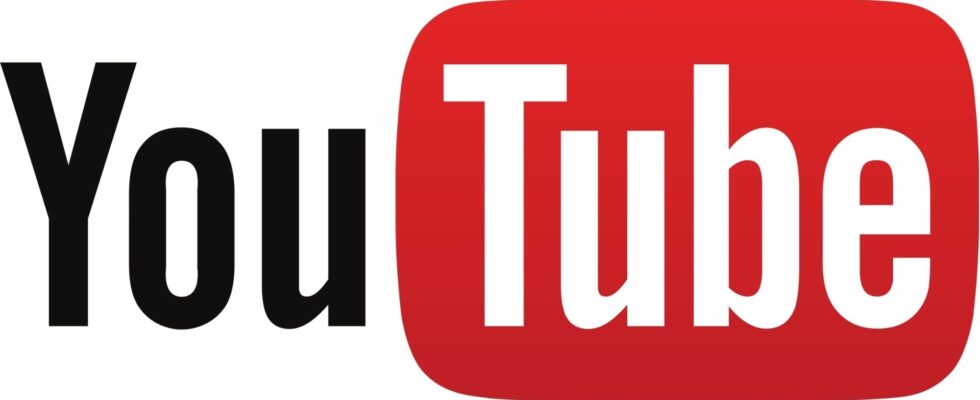“P*****”, “M****”… These sweet words are no longer audible on YouTube. The online video platform has strengthened its voice recognition tool by sanctioning all creators who utter insults and profanity. This case does not help Youtubers. Some of them, like Djilsi, Linca or Squeezie, had to add censorship beeps or animal noises on videos already published in order to hide all the bad words. This regulation directly impacts the portfolio of Youtubers.
Videos that do not respect the rule are demonetized, content creators could no longer derive remuneration from these videos. The rule did not fail to trigger the wrath of youtubers: “Be aware that unless you are the most polite creator in the world, YouTube is really breaking our ass with its new rule of demonetizing swear words “explains the Youtuber Terracid on Twitter.
Know that unless you are the most polite creator in the world, Youtube breaks our balls with its new rule of demonetization of swear words
It’s ridiculous, censorship is screwing up the video, and their rule is retroactive. A simple “oh shit” is enough to demonetize.—Terracid (@terracid) January 8, 2023
A polite language
The fact is not new. In its rules, YouTube already indicated before that content could be subject to an age limit, be removed or have a warning if it used excessive use of vulgar language. However, it seems that tougher language policies on YouTube aren’t just about slurs. On Twitter, streamer Aypierre even claims that certain words would also be banned even if they are not swear words. Aypierre evokes the terms “Ricans” (to designate an American) or “bled” (to speak of a country) which would have caused demonetizations.
it goes even further, “Rican” or “du bled” for example are considered extreme profanity (real)
— Aypierre (@AypierreMc) January 8, 2023
Another example: that of Jean-Baptiste Toussaint, founder of the “Tales From The Click” channel. The creator explains that one of his videos was deleted from the platform because he mentioned the suicide of Kurt Cobain, the singer of the group Nirvana. “My video on Kurt Cobain has been deleted because in it I say that he… committed suicide,” the YouTuber explains in the tweet. “That raises a real question. Is it no longer possible to tell history? Should we change it by inventing another death?” he continues. With Jean-Baptiste Toussaint, YouTube justifies itself by explaining that the video of the creator would not have respected the rules of the platform relating to self-harm.
My video on Kurt Cobain has been deleted because in it I say that he…committed suicide. That raises a real question. Is it no longer possible to tell the story? Should we modify it by inventing another death?
Hello @YTCreateurs possible to recover the video? pic.twitter.com/FmFQvpw4qP
— Tales From The Click (@TalesFromClick) January 17, 2023
A new marketing strategy
If content creators complain about new regulations that help to demonetize their videos, YouTube, for its part, justifies this new rule by… better monetary optimization of the content produced on the platform: “YouTube has strengthened its rules of use because its business model is based on the sale of advertising space to advertisers. It is what is called an ‘Ad tech’ company, which puts its technology and algorithms at the service of the sale of advertisements. With the rise in power of TikTok, YouTube is working to position itself as a “Creator first platform”, which remunerates its creators more and better than other platforms, in particular by sharing its advertising revenues”, explain Zima and June, respectively marketing specialist and doctoral student in sociology . They run the “Internet Product” channel on YouTube, which deciphers the mainsprings of the world of content creation.
“YouTube’s recent announcements go in this direction: announcing the sharing of advertising revenue from shorts from February 2023, and strengthening the rules of use on the use of insults. These rules have a very revealing name: ‘advertiser -friendly content guidelines.” YouTube CEO Susan Wojcicki publishes a letter every year outlining the company’s priorities for the year. In her 2022 letter, she made it very clear that YouTube is working to reduce maximum content that approaches the limits of use without violating them completely”, they continue.
In appearance, the platform is therefore betting on virtue to attract advertisers. Yet two reports plague YouTube regarding the presence of hateful and misogynistic videos on its platform. Despite measures taken in recent years, this content is still circulating en masse. So the report by the analyst firm Center for Countering Digital Hate, published in September 2002, asserts that “misogyny is very present on YouTube”, and that “videos promoting disinformation, hatred and outright conspiracies aimed at women are often monetized”. To reach this conclusion, the report is based on specific keywords and analyzed their trends on the web.
The second study, published by analyst firm Bot Sentinel, relates YouTube’s refusal to demonetize videos disseminating hateful content. The report also points to channels like that of “racist, misogynistic, transphobic” Trevor Coult MC, which has plagued the platform for 11 years, without any sanction from YouTube.
